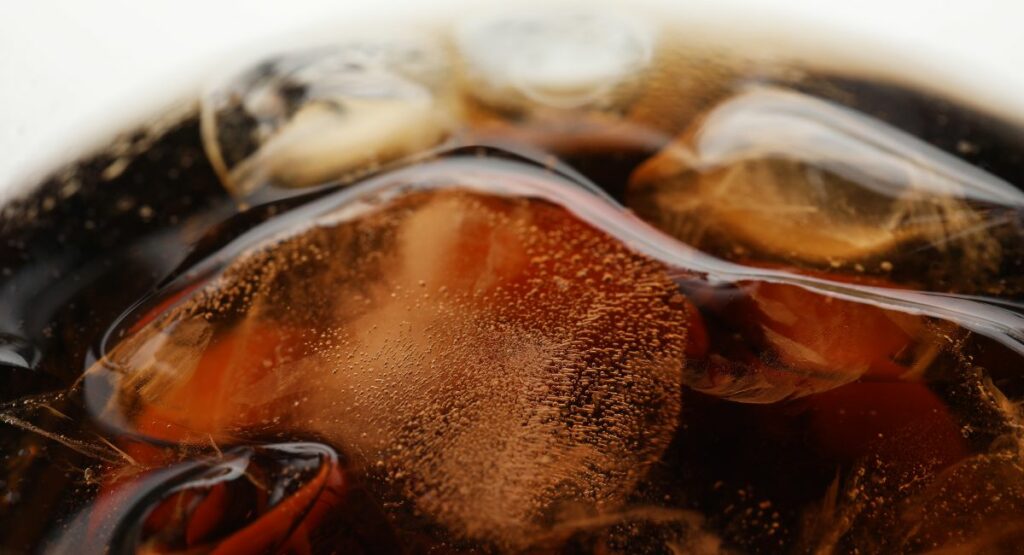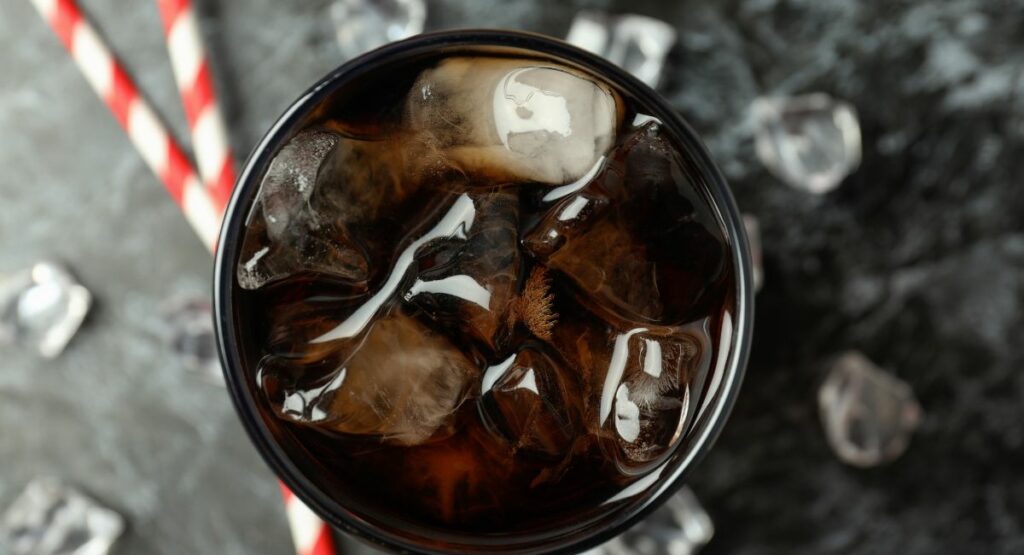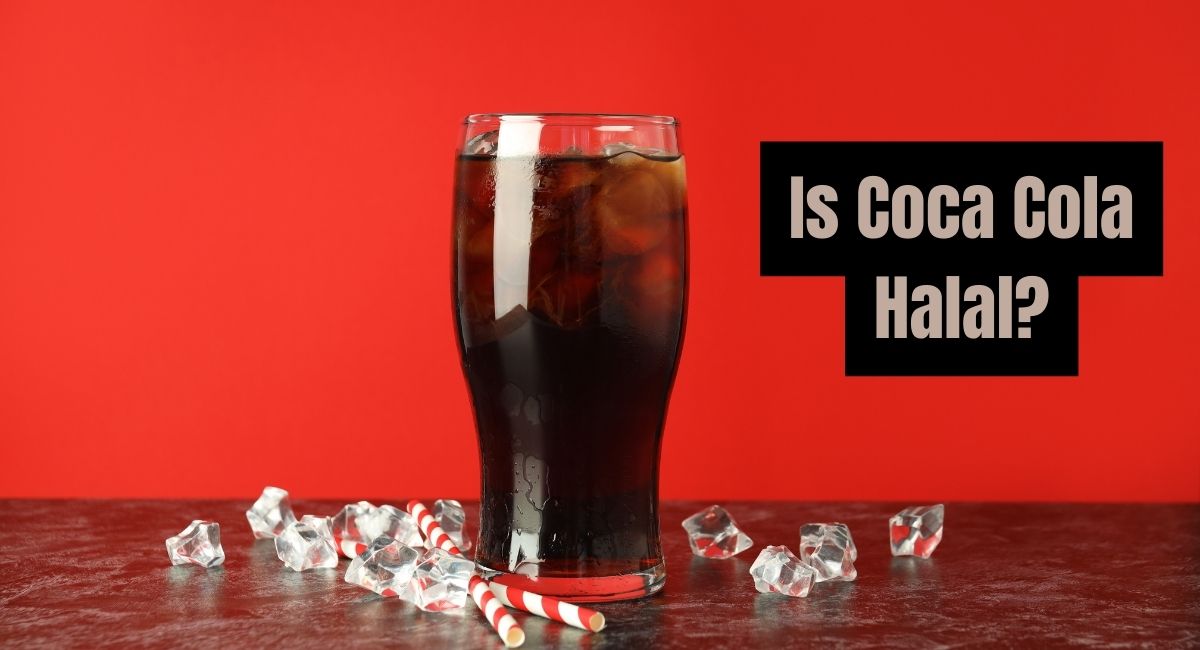Curious about whether Coca Cola is halal? You’re not alone! With so much conflicting information on the internet, it can be hard to know where to start when it comes to researching this topic. To help you, we put together a comprehensive guide that answers the question of is Coca Cola halal or not. We’ll go over what is considered halal, which Coca Cola products are allowed for consumption in a halal diet, and any other considerations you should keep in mind. By the end of this blog, you’ll have all the information you need to decide if Coca-Cola is right for you. So let’s dive right into it.
What Is Coca Cola?
Coca-Cola is a carbonated soft drink that is produced and sold by The Coca-Cola Company. It was first introduced in 1886 as a mood enhancer for Atlanta, Georgia pharmacist John Pemberton’s original formula of coca leaves, kola nuts and sugar. Since then, the recipe has evolved over time to include a variety of ingredients, including phosphoric acid, caffeine and natural flavourings.
Coca-Cola is the most popular soft drink in the world, with more than 1.9 billion servings consumed daily. The beverage is enjoyed by people across cultures and ages for its sweet taste, refreshing bubbles, and invigorating flavour. It has transcended from being a mere drink to becoming a global symbol of refreshment, happiness and conviviality. Coca-Cola is available in more than 200 countries and territories around the world, with over 3,500 different beverages offered.
In addition to the original classic Coca-Cola flavour, there are a variety of other Coca-Cola products that have become popular over the years, such as Diet Coke, Coca-Cola Zero Sugar, Coca-Cola Life and more. Whether enjoyed cold or served over ice, a can of Coca-Cola is sure to bring joy and happiness to any moment.
Ingredients Of Coca Cola

Coca-Cola is a popular carbonated beverage around the world. The iconic drink has been around since 1886 and its recipe is one of the most closely guarded secrets in the world. However, here are the ingredients that make up this famous fizzy beverage:
Overview of Ingredients
- Carbonated water
- High fructose corn syrup
- Caramel colour
- Caffeine
- Phosphoric acid
- Natural flavours
- Citric acid. (Source)
Coca-Cola also contains a small amount of sodium benzoate as a preservative in some countries, but not all. This is why the ingredients may vary depending on where you are in the world.
Coca-Cola also has sugar-free and light versions, which are sweetened with artificial sweeteners like aspartame and acesulfame potassium, instead of high fructose corn syrup. These variations do not contain caffeine or caramel colour.
In summary, the ingredients that make Coca Cola are carbonated water, high fructose corn syrup, caramel colour, caffeine, phosphoric acid, natural flavours and citric acid. Depending on where you are in the world, there may also be small amounts of sodium benzoate used as a preservative. In sugar-free versions of Coca-Cola, artificial sweeteners like aspartame and acesulfame potassium are used in place of high fructose corn syrup, and these variations do not contain caffeine or caramel colour.
Ingredients Explained With Halal Or Haram Status
| Ingredient | What it is | Halal or Haram Status |
|---|---|---|
| Carbonated water | Carbonated water, also known as soda water, sparkling water or seltzer water, is a type of beverage made by dissolving carbon dioxide gas in plain drinking water. In addition to providing flavour and carbonation, it is also used to make beverages such as Coca-Cola. | Halal (Source) |
| High fructose corn syrup | High Fructose Corn Syrup (HFCS) is a sweetener made from cornstarch used in many food and beverage products, including Coca-Cola. HFCS is produced by first converting the glucose in cornstarch into fructose, creating a syrup that contains both glucose and fructose molecules. | Halal (Source) |
| Caramel colour | Caramel colour is an ingredient commonly found in popular carbonated beverages, such as Coca-Cola. It provides a characteristic brown hue and is also used to enhance the flavour of the beverage. | Halal (Source) |
| Caffeine | Caffeine is a naturally occurring stimulant found in plants, such as coffee beans, tea leaves and cacao pods. In recent times caffeine has become an important ingredient in many beverages, including Coca-Cola. | Halal (Source) |
| Phosphoric acid | Phosphoric acid, also known as orthophosphoric acid, is an inorganic compound made up of three oxygen atoms and one phosphorus atom. One well-known use of phosphoric acid is its role in the production of Coca-Cola, where it is used to give the drink its signature tang. | Halal (Source) |
| Natural flavours | Natural flavours are a combination of natural ingredients, such as fruits and herbs, that are used to enhance the taste and aroma of drinks and food. Natural flavouring is commonly used in soda beverages like Coca-Cola to add a unique twist and increase its appeal. | Halal/Haram (Source) |
| Citric acid | Citric acid is a natural organic compound found in citrus fruits. It has a strong acidic taste and is used in many foods and beverages, such as Coca-Cola, to give it its signature tart flavour. | Halal (Source) |
Products Offered By Coca Cola

Coca-Cola is an icon for refreshment and has a wide variety of products on offer. The following is a list of some of the most popular drinks under the Coca-Cola umbrella:
- Classic Coca-Cola: This classic formula, introduced in 1886, still remains the flagship product of Coca Cola. It is a carbonated beverage made from sugar, caffeine and natural flavourings.
- Diet Coke: This is the same classic taste of Coca-Cola but with no sugar or calories for those who are looking for a low-calorie option.
- Coca-Cola Zero Sugar: This is an even lower-calorie version of the original that still maintains the same taste.
- Caffeine-Free Coca-Cola: For those who want the original taste of Coke but don’t want the caffeine, this version has all the flavour without any of caffeine.
- Coca-Cola Cherry: This is a sweeter version of classic Coke that has cherry flavouring added to it.
- Coca-Cola Vanilla: This variant of Coke has a hint of vanilla flavour and is slightly sweeter than the original.
- Sprite: Sprite is an iconic clear lemon-lime soda that helps beat the heat. It is caffeine-free and contains no artificial colours or flavours.
- Fanta: This fruit-flavoured soda comes in a variety of flavours such as orange, grape, strawberry & more. It is a fun and refreshing way to beat the heat.
- Barq’s Root Beer: This classic root beer has an old-fashioned taste that will take you back in time. It is caffeine free and has a unique taste that is unlike any other soda.
- Fresca: This diet citrus-flavoured soda is perfect for those who don’t want the calories of regular sodas but still crave a refreshing beverage. It contains no sugar and no caffeine.
These are just some of the many products offered by Coca-Cola that can be enjoyed on a hot summer day or any other time. Whether you are looking for an energy boost, a refreshing drink, or something to keep you cool, there is sure to be something under the Coca-Cola umbrella that will satisfy your needs.
Are All Coco Cola Products Halal?
It depends on the type of Coca-Cola product you are referring to. Some Coca-Cola products, such as their soft drinks, do not contain any animal or dairy-based ingredients, and therefore would be considered Halal. Other Coca-Cola products may include ingredients that are not considered Halal, such as gelatine. As such, it is important to read the label of any Coca-Cola product before consuming it, to determine whether or not it is Halal-certified.
Some countries may have more stringent regulations on what constitutes Halal food than others, so checking the specific local laws in your country can also be a good way to determine Halal status. All in all, not all Coca-Cola products are considered to be Halal, and it is important to read the labels of any product before consuming it so that you can make sure that it meets your dietary requirements.
If you have any questions about a specific product’s ingredients, contact Coca-Cola directly for more information. They should be able to provide you with detailed information about the components of their products and clarify whether or not they have been certified as Halal. Ultimately, it is important to do your own research into product ingredients before consuming them, so that you can make sure that they meet your dietary requirements.
Coca-Cola and other companies should also provide detailed information about their products so that you can make an informed decision. With careful research and consideration, it is possible to determine whether or not a particular Coca-Cola product is Halal. However, it is ultimately up to the individual consumer to make sure they are consuming food that meets their own dietary requirements.
Therefore, it is important to read the labels, contact the company for more information if needed and make sure that any food product you consume meets your personal standards and expectations. With this information, it is then possible to make an informed decision when it comes to consuming Coca-Cola products.
Frequently Asked Questions (FAQs)
Does Coca-Cola have alcohol?
Which soft drinks are Halal?
Is Soda Halal in Islam?
Conclusion
After reviewing the ingredients and process of making Coca Cola, it is clear that the beverage does not contain any haram or forbidden substances according to Islamic dietary laws. The drink contains only approved food-grade ingredients, some of which are plant-based such as sugar, water, citric acid, phosphoric acid, etc. Furthermore, the process of making the beverage does not involve any element that would render it haram.
Therefore, based on Islamic dietary laws, Coca Cola is considered to be halal and acceptable for consumption by Muslims. However, it is important to note that since the drink contains a large amount of sugar and caffeine, which can have adverse effects if excessively consumed, it should be consumed in moderation.
Due to the highly-processed nature of Coca Cola and its high sugar content, it is not recommended as a regular beverage choice but rather viewed as an occasional treat. Ultimately, it is up to each individual Muslim’s discretion if they decide to consume the drink or not.
Despite the fact that Coca Cola is considered to be halal according to Islamic dietary laws, it should still be consumed in moderation and not viewed as a regular beverage choice. Ultimately, it is up to each individual Muslim’s discretion whether or not they decide to consume the drink.






